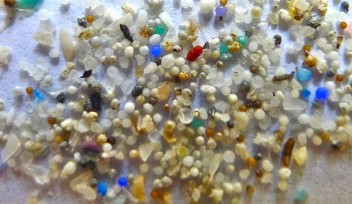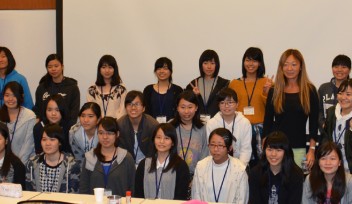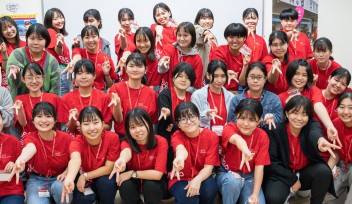What we can do now to break down invisible gender barriers
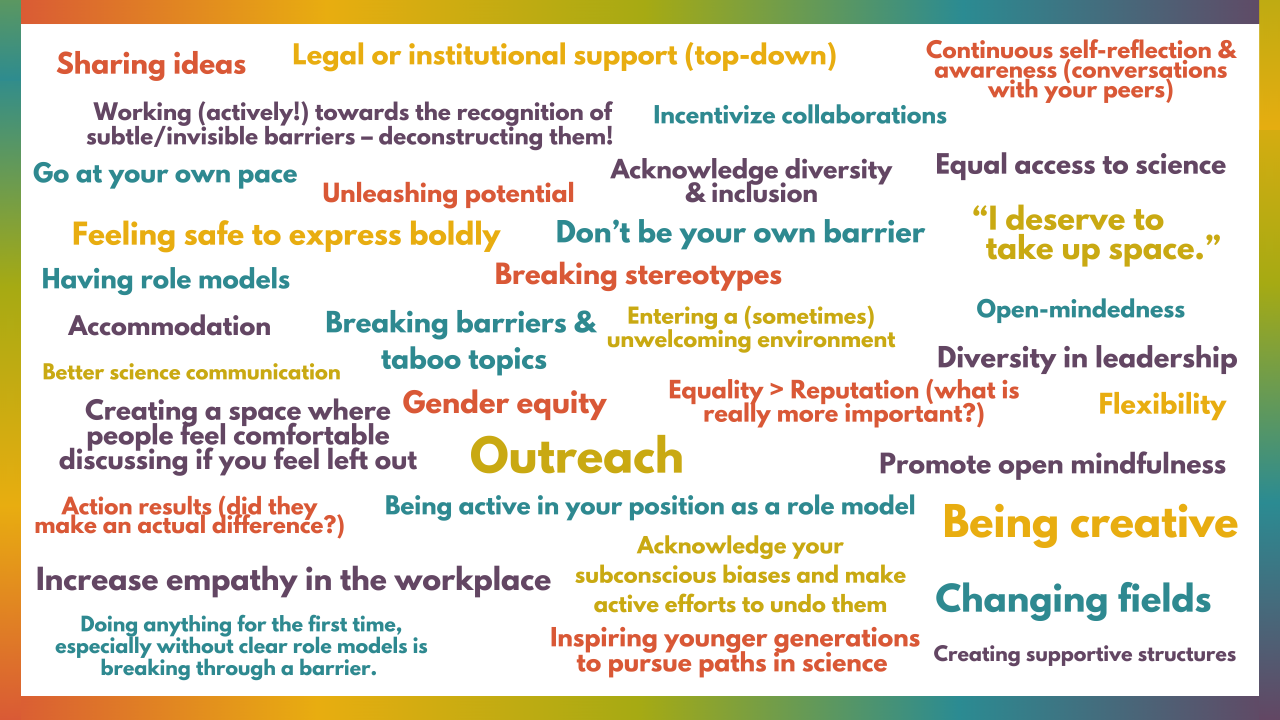
International Women’s Day, a global holiday established by the United Nations, is celebrated each year on March 8. The day marks an opportunity for people across the world to honor the achievements of women, and to think about how to promote gender equity and equality.
Gender equality is also one of the Sustainable Development Goals (SDGs), designating it as one of the most important global societal issues to be solved.
Gender gaps, in many cases, are caused by stereotypes, prejudices, and differences in our cultures and values, which create invisible barriers that prevent mutual understanding. But how can we overcome these barriers? In this article, we will introduce the efforts of OIST scientists who have started taking actions to overcome these barriers, enacting changes to promote a world where anyone can play an active role in any field.
Communication shines light on invisible barriers
On February 14, OIST hosted its first on-site Global Women's Breakfast (GWB). Founded in 2019, the breakfast is one of a series of community activities taking place around the world on this specific day, for scientists and researchers to discuss the future of gender equality. The movement, initiated by the International Union of Pure and Applied Chemistry (commonly known as IUPAC)*1 has now spread to around 80 countries, with 407 global women’s breakfast events taking place last year with approximately 30,000 participants.
The first on-site GWB event at OIST was launched by Professor Christine Luscombe of the pi-Conjugated Polymers Unit who represents the Polymer Division at IUPAC, with Postdoctoral researcher, Samantha Phan, and Ph.D. student, Lorenzo Guio. Professor Luscombe was recently awarded the 2022 Polymer Society of Japan Academic Award for her research in Synthesis of Semiconductor Polymers by Condensation Polymerization Based on Direct Arylation and Catalytic Transfer.
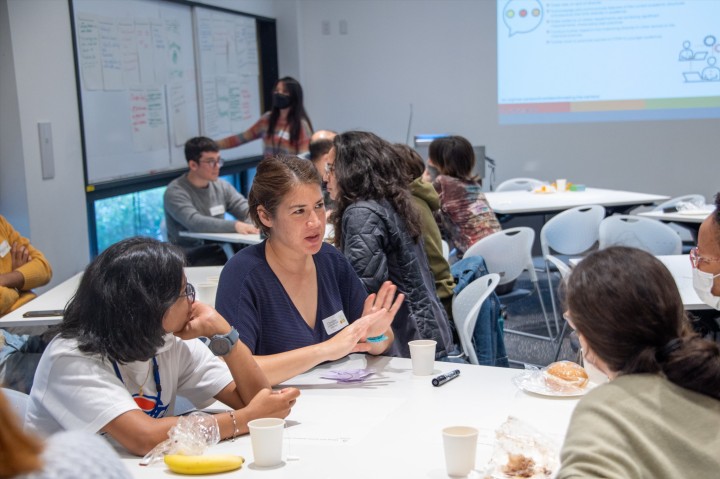
During the breakfast, around 50 OIST researchers, staff and students gathered for the keynote speech from Professor Goda, Synapse Biology Unit (Yukiko Goda) and were then divided into several small groups to participate in a brief workshop. The participants were asked several questions including: What do you consider a barrier in science? What are some strategies to help break barriers in science? What are some actions we can implement today? Each group shared their opinions on these questions and explored questions, challenges, and solutions to the "invisible barriers" that minority groups can experience in the world of science.
This year's event was attended by a diverse group of people, from students to faculty, many men as well as women, and non-scientist staff members. “Even though we come from diverse backgrounds, discussion and working towards common goals strengthens the bonds between all of us" said OIST researcher Dr. Phan. She continued that engagement, communication, and empathy among everyone is the key to addressing invisible barriers.

For Prof. Luscombe, immediate action starts with discussion. “In science, barriers exist not only between men and women, but also between disciplines, languages, cultures, and so on. The only way to overcome them is through communication and mutual understanding." Rather than simply asserting each other's differences, she says, “it is important to think at the same table with a variety of people about what they perceive as challenges and how we want to solve them”.
"Even if it is a good idea, it may be difficult to actually take action. But it is important to be aware that we are breaking down barriers. We want to build a community of people with the same passions and create a movement that will make a big difference”.

*1IUPAC is an international scientific federation based in Switzerland, founded in 1919. Its objectives include the provision of a common language for chemistry, such as the naming of compounds, the promotion of the development of sustainable chemistry, and the free exchange of scientific.information.
Research Unit
For press enquiries:
Press Inquiry Form











